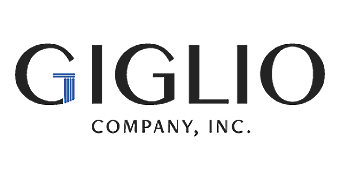Sales Training Solutions 2023: Part 3
Changing Behaviors
My last blog addressed systematic changes you can make to start transforming sales order takers into consultative authorities. In this post, I focus on behaviors that need to change and some that should be developed to move your team toward becoming trusted advisors for your clients.
To Begin…Stop!
I recommend you start with a Stop List. On this list, you will note the behaviors your employees need to stop doing so that new behaviors can take their place. Here are a few examples:
STOP rote conversations. Yes, your team needs to be trained on the company’s value proposition, the solutions offered, and the benefits of each solution. However, clients know if you are reciting that information rather than tailoring it to their needs. You’ve said it all before…they’ve heard it all before. Is that the energy you want your team to create? Train your teams to customize presentations, conduct engaging conversations, and ask smart probing questions. Those are behaviors that will develop authority.
STOP prioritizing price. Is your service a commodity? Can anyone do it? It is easy to replicate? If so, then price may be your team’s best foundation for starting a conversation. However, most companies have developed a value proposition that is based on knowledge, expertise, experience, and proficiency. Salesperson and author Zig Zigler said, “If people like you, they will listen to you. But if they trust you, they will buy from you.” Leading with price does little to establish that trust. Stop your teams from focusing on how much a client will pay and pivot them toward why they should pay.
STOP bundling recommendations. Just because you’ve had success bundling certain solutions doesn’t mean you should automatically package them for each client. Your team must realize that what worked for Client A may not work for Client B even if they are in the same industry. Train your team to selectively menu your products/services based on each client’s needs while giving the client flexibility so that you can collaboratively create a comprehensive solution.
Start Developing Authorities
Once these behaviors have been eliminated, you can have your team START developing new approaches that will build their acumen as authorities. Here are a few examples:
START listening empathetically. As salespeople, we are conditioned to listen for sales opportunities. That’s fine as long as it’s not all your team is doing. Until they establish trust, your team will likely only be told the surface-level issues affecting their clients. They need to dig deeper. And they do that by listening with empathy to demonstrate caring. Someone who cares acknowledges the issues and the commercial impacts they have. Someone who cares asks about the toll these issues have had. Someone who cares gets a client to open up and reveal more about the situation. And someone who cares will present solutions based on this more meaningful understanding.
START redefining value. Priorities change. Challenges change. Competitive landscapes change. This is true for your company and your clients. Your team must start each engagement by refining your value proposition so that it addresses new environments in which your clients operate. For each client, do they understand what problems they are truly solving today? Do they know how the competitive set can address them? Have they tailored solutions that are unique and can only be delivered by your company? Starting with these questions will help bring value to their recommendations and further from the commoditization of price.
START visioning. Your teams need to look to the future with clients. But not the future they see given current circumstances, challenges, and personnel. Rather, they should look at a client’s ideal future. It’s important your team learns what your clients really want. A great probing question would be, “Let’s take time and money out of the equation. Where do you want your team to be in December?” Have your teams talk with clients about the future they want and together they can create a scenario in which that future is realized.
Believe it or not, we are already halfway through 2023. It’s important you create these STOP and START lists with your teams now so that you can change behaviors, increase client engagement, and build a stronger foundation for the end of the year. The good news for you and your teams is that you have help available. In my next post in this 5-part series, I will recommend creating Solution Centers and define why they are critical for building team confidence and client trust. Stay tuned!




